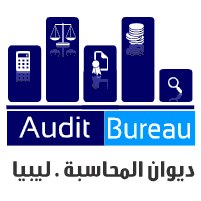By Sami Zaptia.

Tripoli, 18 March 2014:
The Audit Bureau’s 446 page annual report for 2013 presented to the GNC . . .[restrict]last week rebukes the Zeidan government for poor governance, lack of transparency and poor management, and poor follow up and implementation – across a wide range of sectors.
It accuses it of giving “poor value for money” to the Libyan citizen in return for the large budget approved by the General National Congress.
On the budget, the report confirmed a budget deficit of LD 10.8 bn in 2013 “mainly due to the oil embargo”, and admonishes the government for “delaying the debate” on the budget and delaying the 2013 budget itself “until the first quarter of 2013”.
The report also criticized the government for proposing budget “estimates that were too high” and, “increasing the size of the budget” despite “the lack of implementation of the development and projects sector”, due to the lack of security and the refusal of foreign contracting companies to return to Libya.
It also ticks off the government for ignoring procedures, rules and laws on how the budget should be prepared and implemented, for spending LD 16.6 bn of money in areas that it was not approved for, including using money approved for development, and without clear justification, and failing to provide a detailed report of extraordinary expenditures of LD 3 bn.
The report also reprimanded the government for spending 35 percent of the budget on wages and failing to enforce the National ID number that the government introduced specifically to help cut down on duplication and corruption.
This issue was particularly prevalent after the end of the conflict in Libya’s 2011 Revolution where tens of thousands of militias signed up fraudulently for multiple wages.
On the issue of militias, the report criticizes the government for “continuing to pay wages” to militias despite it having passed a law that prohibits this.
On Libya’s development and projects sector, the critical Audit Report rebukes the government, specifically the Ministry of Planning, for failing to insist on follow-up and monitoring reports on the implementation of projects to justify the disbursement of money.
It also criticizes it for failing to create a database of ongoing and planned projects and for the lack of coordination between the Central Bank of Libya, the Ministry of Finance and the Ministry of Planning with regards to development projects.
The Tax Department is also criticized for failing to collect more taxes despite, in the reports opinion, improved economic activity within the Libyan market.
The government comes in for particularly heavy criticism in the Audit Report for the poor security situation in Libya despite the Ministry of Interior and Defence spending and having a budget of nearly LD 20 bn over the period 2012 and 2013.
It highlights its failure to integrate the thuwar/militias into the army despite LD 3.66 bn spent on the project in 2012.
It also admonishes the government for the “overlap of responsibilities between the various Joint Security Rooms, the Ministry of Defence and the various Shields” (officially recognized brigades).
With regards to the various governmental decrees made in reaction to security crises, the Audit Report reproached these decrees for being” uncoordinated”, “lacking planning”, and “contradictory”.
Ultimately, the critical Audit Report admonished the government for not studying decisions more carefully prior to making decrees or asking the GNC to pass laws, saying that “spending money” was not “the solution to problems”.
It will be recalled that in assessing his government’s performance in February, former Prime Minister Ali Zeidan gave his government a score of “over 90 percent”. This seems to contrast markedly with the conclusions of the 2013 Audit Report.
Equally, during his two hour interview last week, his first major interview since the GNC voted him out of office last Tuesday (11th March) , Zeidan adamantly denied any corruption, saying that if there was any irregularity Libya’s Attorney General would have charged him.
This article highlights just some of the points covered by the lengthy 446 page report. For the full report (in Arabic) see the Audit Bureau’s link: http://bit.ly/1ekrCED
[/restrict]










